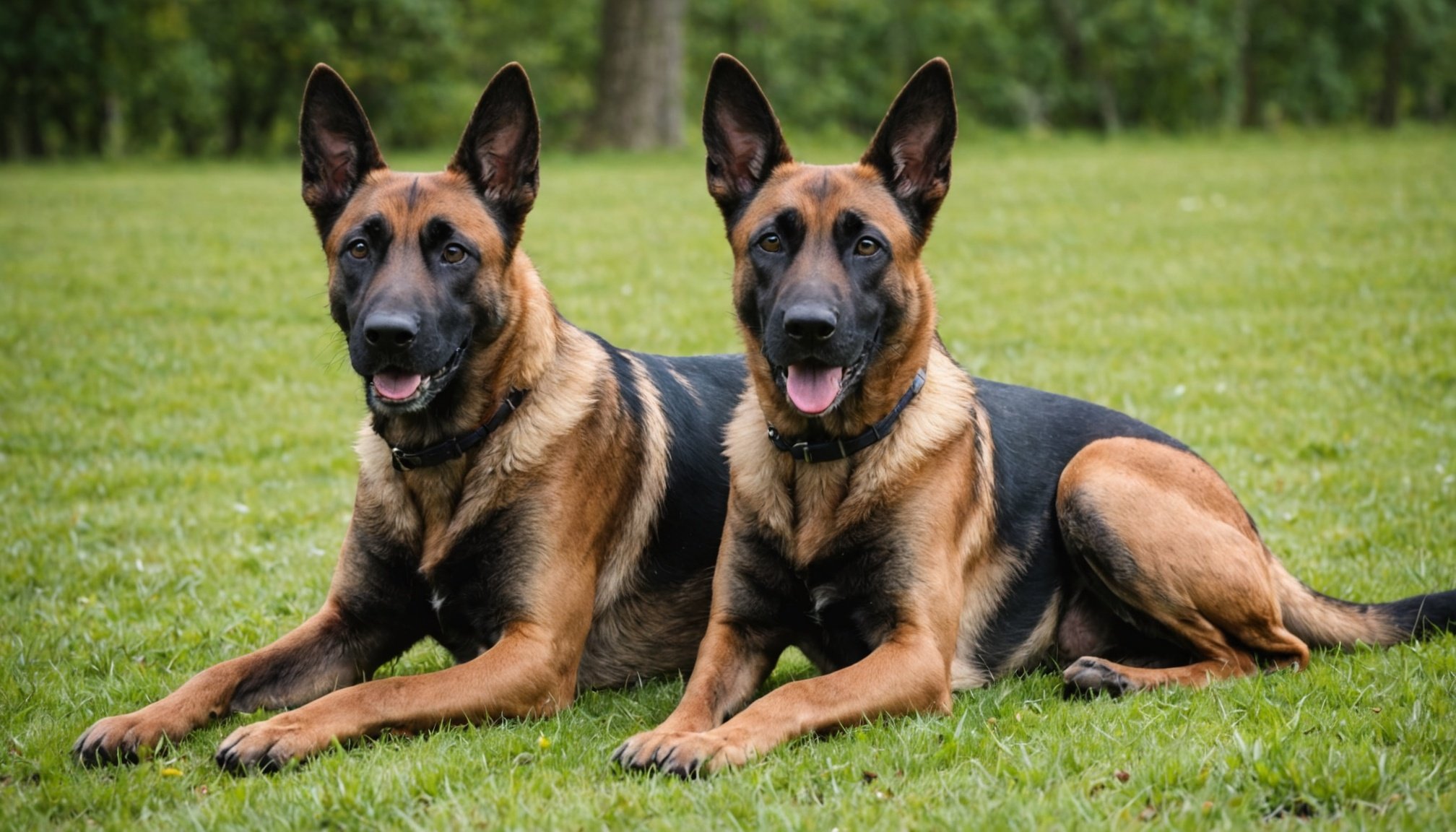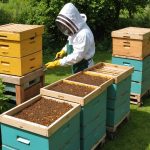Overview of Vaccination Importance for Belgian Malinois
Understanding the vaccine importance for Belgian Malinois is crucial to ensuring their health and longevity. This breed benefits from vaccinations as they help guard against diseases that could otherwise compromise their well-being. Belgian Malinois are known for their athleticism and intelligence, making them popular working dogs. Their active lifestyle places them at significant risk of exposure to various pathogens.
Vaccinations play a vital role in Belgian Malinois health by preventing the spread of diseases that are common in social environments or outdoor settings, where these dogs often interact. For example, leptospirosis and canine distemper are diseases that vaccinations can effectively prevent.
Lire également : Boosting Bloodhound Scent Tracking Skills: Elevate Your Dog’s Performance in Search and Rescue Operations!
Furthermore, Belgian Malinois, due to their genetics, may have different reactions to diseases compared to other breeds; hence, following a tailored vaccination schedule with your veterinarian is recommended. Despite being robust, their energetic nature exposes them to environments that necessitate preventive measures provided by vaccinations. Regularly updating these vaccinations ensures that they remain protected against evolving strains of viruses and bacteria.
In summary, dog owners should prioritize vaccination importance to sustain their Belgian Malinois’s robust health and active life, ultimately safeguarding them from common diseases.
En parallèle : Ultimate Guide to Monitoring Exercise for Your Energetic Australian Cattle Dog
Recommended Vaccination Schedule
Belgian Malinois puppies require a carefully planned vaccination routine to ensure their health and protection against common diseases. Each puppy has specific age-specific vaccination milestones that should be followed meticulously. Initially, vaccinations usually start when the puppy is about six to eight weeks old. During this time, core vaccinations against dangerous viruses like distemper and parvovirus are crucial. These vaccinations are then repeated every three to four weeks until the puppy reaches 16 weeks of age.
Transitioning to adult vaccinations begins from around 12 to 16 months when booster shots are necessary. These boosters help maintain immunity and are typically administered every one to three years, depending on the specific vaccine and the dog’s risk exposure. Core vaccines remain essential, but additional vaccines may be recommended based on the dog’s lifestyle and exposure risks.
Every Belgian Malinois is unique, and their vaccination schedule should reflect that. Adjustments can be made for individual health needs, such as pre-existing conditions or specific environmental factors. Regular consultation with a veterinarian ensures that each dog receives the best possible protection tailored to their needs, guaranteeing a robust and healthy life.
Types of Vaccines for Belgian Malinois
Vaccinating your Belgian Malinois is essential to ensure their good health and longevity. Core vaccines are those that every Belgian Malinois should receive, as they protect against life-threatening diseases common to all dogs. These typically include vaccines for rabies, distemper, hepatitis, and parvovirus. Administering these vaccines is crucial in safeguarding your dog from highly contagious and sometimes fatal illnesses.
Non-core vaccines, on the other hand, are not universally required but are recommended based on the individual dog’s lifestyle, environment, and potential exposure risks. For instance, if your Belgian Malinois frequently interacts with other dogs or wildlife, vaccinations against Bordetella or Lyme disease might be advisable. Remember, these vaccines should be discussed with a veterinarian to assess the need properly.
When considering puppy vaccine types, it’s essential to understand that these often include both core and some non-core vaccines, depending on the puppy’s exposure risks. Timely vaccination schedules enhance their effectiveness in building immunity. Each type of vaccine plays a specific role in protecting against distinct pathogens. Therefore, balancing core and non-core vaccines tailored to a Belgian Malinois’s lifestyle ensures optimal health and well-being.
Tracking Vaccinations and Record Keeping
Maintaining accurate vaccination records for your Belgian Malinois is essential for ensuring their health and compliance with local regulations. Keeping track of vaccinations helps you stay informed about your dog’s medical history and allows for quick reference during vet visits or emergencies.
There are several tools and methods you can use to effectively track vaccinations and appointments. Digital apps designed for pet health, such as PetDesk or 11pets, offer user-friendly interfaces to log your dog’s vaccination records efficiently. These apps can store vaccination dates, update reminders, and send alerts when it’s time for a booster. If you prefer traditional methods, a simple spreadsheet or a vaccination booklet provided by your vet can also serve this purpose.
Setting reminders for upcoming vaccinations is crucial for timely administration. You can utilise digital reminder systems within health applications or default calendar apps on your phone. Scheduling reminders a few days in advance can help manage last-minute hiccups and keep your Belgian Malinois’ health a priority. Ultimately, choosing a reminder system that best fits your lifestyle will ensure you never miss an important vet visit.
Understanding Potential Side Effects
After a vaccine, a Belgian Malinois may experience common side effects such as mild fever, lethargy, or a slight swelling at the injection site. These are typically short-lived and manageable with proper aftercare. Ensuring your dog remains comfortable involves keeping them hydrated, monitoring their activity level, and providing a quiet space for rest.
Aftercare is crucial for minimizing discomfort. For instance, gently massage the injection area to reduce swelling. Encourage your Malinois to relax, but keep an eye for any unusual symptoms.
Recognizing an allergic reaction is vital. While rare, symptoms can include hives, swelling, breathing difficulties, or vomiting. If your Malinois exhibits any of these signs, it is essential to contact a veterinarian immediately, as this could indicate a severe allergic response.
In summary:
- Common side effects: mild fever, lethargy, swelling.
- Effective aftercare: hydration, rest, gentle massage.
- Allergic reactions: hives, swelling, breathing issues.
Your aftercare efforts can greatly contribute to your Belgian Malinois’s well-being post-vaccination. Knowing when to seek veterinary assistance ensures your pet stays safe and healthy.
Regular Veterinary Check-Ups
Regular veterinary care is essential for the well-being of your Belgian Malinois. Annual check-ups offer a comprehensive approach to monitoring your dog’s health, beyond the essential vaccinations. These check-ups serve as crucial opportunities to assess the overall health of your pet, ensuring early detection of potential issues. If you’re wondering about the best time to start these check-ups, it’s advisable to begin them when your dog is a puppy and continue annually.
During these visits, veterinarians will examine various health aspects such as weight, dental health, and potential behavioural changes. This careful health monitoring aids in identifying concerns early, making it simpler to address them. For instance, detecting dental issues early can prevent more complex problems later on.
To ensure you’re getting the most from these visits, consider initiating discussions with your vets about all aspects of your Belgian Malinois’s health. Raise any specific concerns you have and inquire about the best vaccination schedules. Additionally, discuss tailored health care plans that could suit your dog’s lifestyle and needs. Being proactive with these discussions not only enhances the care your dog receives but also strengthens the bond between you and your veterinarian.










